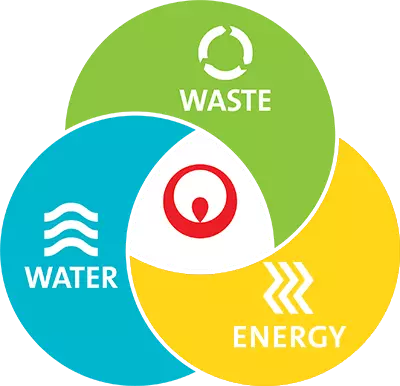Landfill site is an area of land that is used to dump rubbish, either directly on the ground (landraising) or filling a hole in the ground (landfilling). Today, a landfill site has to have protective measures against pollution of groundwater, surface water, greenhouse gas emissions, slope instability and erosion. Landfills can be equipped with degassing installations to reduce methane emission.
Veolia manages all phases of landfill activity, including: siting, cost and feasibility analyses; permitting; construction and operations monitoring; landfill capacity and service agreements; operator training; procurement of landfill gas recovery projects; closure and post-closure planning; and environmental compliance.
Non-Hazardous Waste is all waste, trash, garbage or refuse with no properties of hazardous waste (explosive, flammable, irritant, toxic, etc.). This waste is non-hazardous and does not pose a risk to health or the environment. Non-hazardous waste is mainly generated by companies, industries, agricultures, mining’s and households.
Municipal Solid Waste (MSW) is commonly known as trash, garbage or rubbish. It is household and similar waste that is produced "on a routine basis" by households and similar economic actors whose waste is taken in charge by the public waste collection service (mixed household waste and waste collected separately, basic collection or drop-off point).
Commercial and Industrial Waste (C&I) is controlled waste arising from the business sector. Industrial waste is waste generated by factories and industrial plants. Commercial waste is waste coming from the activities of wholesalers, catering establishments, shops and offices.
Construction and Demolition Waste (C&D) arises from activities such as the construction of buildings and civil infrastructure, total or partial demolition of buildings and civil infrastructure, road planning and maintenance. It consists of numerous materials, including concrete, bricks, gypsum, wood, glass, metals, plastic, solvents, asbestos and excavated soil, many of which can be recycled.
Organic Waste is material that is biodegradable and comes from either a plant or animal. Organic waste is usually broken down by other organisms over time and may also be referred to as wet waste. Most of the time, it is made up of vegetable and fruit debris, paper, bones and human waste which quickly disintegrate.

Veolia is uniquely positioned to service industry, government and commercial entities in improving performance, managing water, energy and waste


